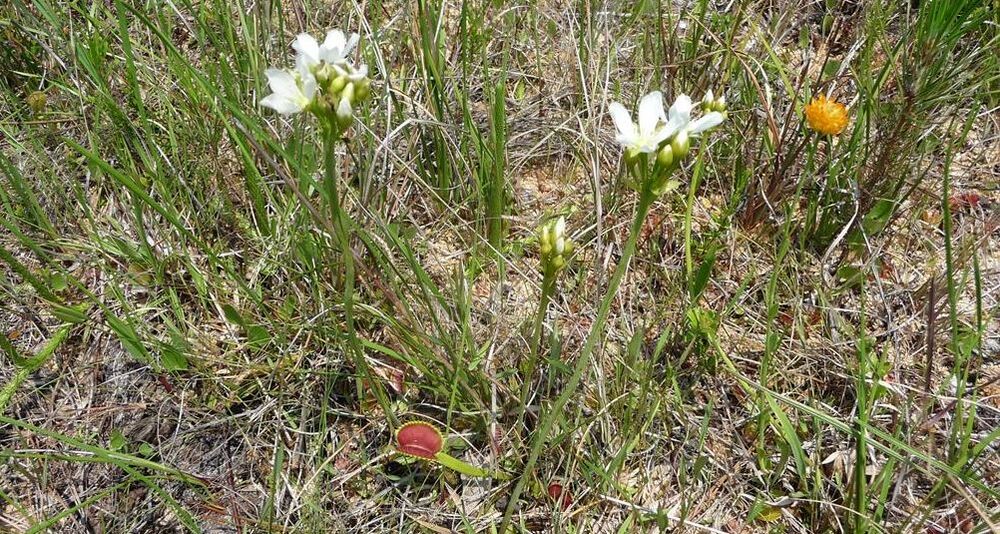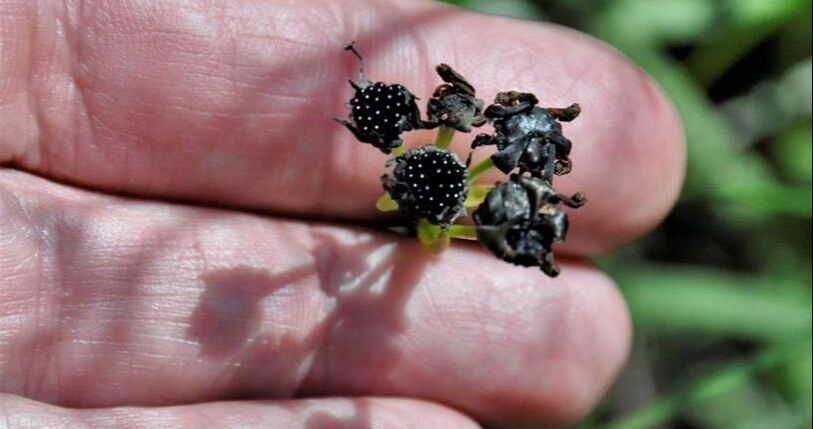There's still a lot to learn about Venus Flytrap!
Here are some of the ongoing studies we are watching:
|
Venus Flytrap pollination ecology . . .
Although Venus flytrap is famous for its leaves, its flowers play an essential role in its reproduction and persistence. Researchers at North Carolina State University (NCSU) - in collaboration with researchers from the U.S. Fish and Wildlife Service and the University of North Carolina at Chapel Hill – recently identified which insects are the likely pollinators of Venus flytrap. In addition, the authors found evidence that Venus flytrap almost never traps its own pollinators. Ongoing work by researchers at NCSU explores the relative importance of pollinators to this plant, and which factors might impede pollination. Investigators: Elsa Youngsteadt, Dept. of Applied Ecology, N.C. State University Rebecca Irwin, Dept. of Applied Ecology, N.C. State University Matt Bertone, Plant Disease and Insect Clinic, N.C. State University Alison Fowler, Organismic and Evolutionary Biology, University of Massachusetts Amherst Sara June, USDA Animal and Plant Health Inspection Service Michael Kunz, North Carolina Botanical Garden Dale Suiter, U.S. Fish and Wildlife Service Clyde Sorenson, Department of Entomology and Plant Pathology, N.C. State University Laura Hamon, Dept. of Entomology and Plant Pathology, N.C. State University |
Venus Flytrap seed conservation &population genetic architecture analysis . . .
Inventories show that Venus Flytrap populations have been declining. Seed banking, or "ex situ seed conservation," is a recognized practice for long-term plant conservation. Researchers at the University of North Carolina at Chapel Hill are collecting Venus Flytrap seeds for long-term storage from 150 populations from across the species' range. Special attention is being given to peripheral and disjunct populations while ensuring that collections are representative across the entire range. Standing genetic variation in 40 select populations is also being studied using restriction site associated DNA sequencing (RAD-seq). Since 2017, over 94,000 seeds have been collected, processed, vacuumed-sealed, and frozen. Collections are made by maternal line (keeping seed from each plant separate from another) which allows for scientific study, and genetically diverse reintroduction and/or population augmentation. Preliminary results from the genetics study show that there are four distinct clusters that match nicely with geography. Stay tuned! Investigators: Johnny Randall, North Carolina Botanical Garden Corbin D. Jones, Dept. of Biology and Carolina Center for Genome Sciences Gregory P. Copenhaver, Dept. of Biology and Carolina Center for Genome Sciences |


